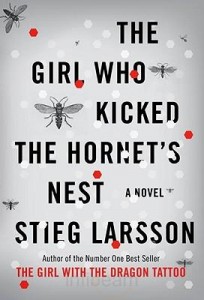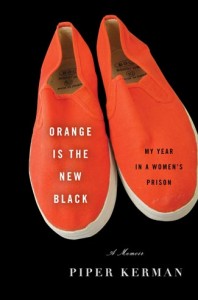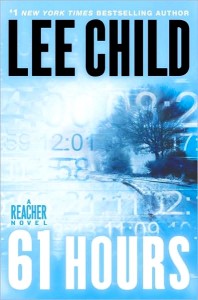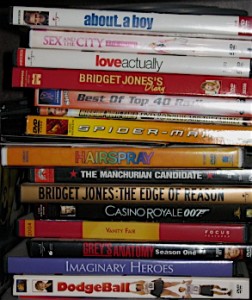 It was with a sense of melancholy that I closed the cover on Stieg Larsson’s The Girl Who Kicked the Hornet’s Nest (Knopf, May 25, U.S. release) after finishing the last page. For it is the last page; there will be no more Lisbeth Salander, a character I’ve been rooting for from the moment I met her in The Girl with the Dragon Tattoo, someone I’ve enjoyed spending time with, as antisocial as she is. I tried to prolong the experience, reading slowly and in small spurts, but failed miserably.
It was with a sense of melancholy that I closed the cover on Stieg Larsson’s The Girl Who Kicked the Hornet’s Nest (Knopf, May 25, U.S. release) after finishing the last page. For it is the last page; there will be no more Lisbeth Salander, a character I’ve been rooting for from the moment I met her in The Girl with the Dragon Tattoo, someone I’ve enjoyed spending time with, as antisocial as she is. I tried to prolong the experience, reading slowly and in small spurts, but failed miserably.
The events of the previous books in the Millenium trilogy have led to this (spoilers for those who haven’t read the other two books): Lisbeth being captured and put on trial for attempted murder, aggravated assault and other trumped up charges. She has to face Dr. Peter Teleborian, the nefarious psychiatrist who conspired with a maverick faction within the Secret Police to have Lisbeth sent away to an asylum when she was 12. Teleborian and his colleagues once again attempt to have her committed, neutralizing all claims of how they’ve abused her civil rights, but this time Lisbeth fights back with the help of her journalist friend, Mikael Blomkvist, and his lawyer sister, Annika Giannini, who decides to rep Lisbeth.
Meanwhile, the police are searching for her murderous half-brother Ronald Niedermann, who has unfinished business with Lisbeth. The two share the blood of their father, a depraved Russian spy defector, and in the end, Lisbeth must decide how much she’s willing to sacrifice in order to stop the evil from spreading. (End spoilers.)
While misogyny has been a running theme in these books, the other two also had strong mysteries built in. There are mystery elements here (who’s sending hate mail and stalking Erika Berger, former editor of Millenium magazine?) but I felt Larsson finally going all out with his condemnation of how some men still treat women, of how absolute power corrupts when there’s no one to watch the watchers (it’s convenient that one of the heroes is a journalist, as Larsson was). A dirty police inspector thinks the following while looking at Lisbeth:
She’s fucking retarded, [he] thought…He reminded himself that she was a lesbian and consequently not a real woman.
The fight Lisbeth now has on her hands is less a physical one than an intellectual one, for she must prove she’s not only mentally competent now but always has been. She must convince the judge that she and her rights have been repeatedly violated by men in power, not just because she’s a woman but a smart and resourceful one, a threat to those with malicious intent. These are big claims from a petite girl and I’ll just say her day in court is immensely satisfying.
Before she can get there, Lisbeth spends much of the book in seclusion (though she’s hardly idle), first in a hospital with a police guard then in jail awaiting trial. Because she’s such a badass, I wanted her out putting the hurt on those who deserve it. But she does have a final confrontation in which she makes a surprising decision, one which shows how her travails have changed her. And while I was sad to say goodbye, it’s good to leave her in a hopeful place, one in which she may no longer need to play with fire or kick hornets’ nests.
Nerd verdict: Girl finishes strongly
Buy The Girl Who Kicked the Hornet’s Nest from Amazon
Buy from Indie Bookstores













